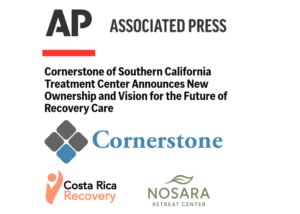Life in recovery can feel overwhelmingly difficult at times. We live in a stressful era and often don’t notice stress building up until it’s too late. The temptation to isolate can be hard to resist, and this allows many people to pursue their addiction in private. Support groups can be a key part of any successful relapse prevention effort.
Humans are social creatures, and addiction often takes away some of that humanity. It can fill the addicted person with shame and self-loathing. It can isolate people from their loved ones and keep them from doing things they enjoy.
In recovery, activities with other recovering people can be the glue that holds your new life together. Support groups—especially 12-step meetings—are a powerful way to manage stress and maintain emotional balance. The sense of fellowship, support, and camaraderie at meetings can lend stability to your life, even when everything else feels uncertain.
Even studies show that “people power” – the kind you discover when you’re at a 12-step meeting or recovery-related event – actually contributes to better outcomes for people in sobriety. Long-term research has shown that people who attend 12-step meetings regularly – up to three times a week or more – stay sober for much longer than those who don’t, often up to 16 years or more without a relapse.
The Power of Community in Recovery
Twelve step meetings are a place to find strength in numbers and a strong sense of community. After all, recovery is not meant to be a solo journey. Meetings are where people in recovery meet others who have been through the same challenges and can learn from each other. Sharing your experiences with other members of the group can help create a sense of belonging.
During high-stress periods, going to meetings more frequently reinforces this sense of connection. Many people going through a difficult time will make it a goal to go to a meeting every day or do “30 meetings in 30 days” to stay grounded. Hearing others share their victories and setbacks can help people in recovery find reassurance that the challenges they’re facing are temporary.
A 12-step meeting is the best place to go when you’re feeling low, even when you feel like you don’t want to go. Meetings are like a home base, and you’re welcome there no matter what. They are vital when you are going through a rough patch.
Emotional Support Is a Lifeline in Tough Times
Stress, anxiety, and uncertainty can feel suffocating, but support groups offer a safe space to talk in a judgment-free zone. Sharing your struggles can be cathartic, allowing stress to be released rather than bottled up. A burden shared is a burden lessened.
People also have valuable experiences to share at 12-step groups. Other people’s experience, strength, and hope are priceless. You can find much of it within the walls of any 12-step meeting.
Accountability and Encouragement
When stress levels rise, it’s a bit easier to fall into old habits or destructive thought patterns. 12-step support groups help people stay accountable to their commitments and goals. Regular attendance creates a routine, reinforcing healthy coping strategies. It’s a solid strategy for relapse prevention and networking with others.
People also get to know you! They will understand your challenges and want to help you meet them. You’ll make friends, hopefully find a 12-step sponsor, and become a vital part of groups you attend regularly.
Encouragement from sober friends also plays a crucial role in sobriety. Hearing “Keep coming back” or “You’re not alone” reinforces that you’re welcome and have a home away from home, even when things feel tough. The group dynamic provides a built-in support system that uplifts members through both struggles and successes.
Finding Belonging in the Journey
Beyond structured discussions, support groups foster genuine friendships and a sense of camaraderie. Whether it’s a warm greeting at the door or the unspoken understanding between members, these connections create an atmosphere of acceptance and support.
Difficult times can lead to feelings of isolation, but regular attendance at meetings helps build and maintain meaningful relationships. Knowing there is a group of people who care and understand can ease feelings of loneliness and provide a much-needed emotional anchor.
Why Attend More Support Groups?
Attending meetings more frequently during stressful periods isn’t just about emotional support—it also provides practical tools for coping with difficulties. You can keep grounded in your recovery and cope with more challenges along the way.
- A structured routine: Regular meetings create stability and a sense of normalcy when life feels chaotic.
- Immediate relief from isolation: Spending time in a supportive environment reduces loneliness and discourages self-isolation.
- Exposure to new perspectives: Hearing how others navigate challenges can offer fresh insights and coping techniques. You can identify with their experiences and feelings.
- A chance to help others: Supporting someone else in their journey can be just as healing as receiving support. The 12th Step of Alcoholics Anonymous asks that members continue to help others. This can also get you out of yourself and help you find purpose.
Difficult times are an inevitable part of life, but facing them with the support of a recovery community can make all the difference. Attending support groups more frequently provides emotional relief, accountability, and a sense of belonging. You get to know people, and they get to know you! Rather than battling challenges alone, embracing the power of fellowship ensures that no one has to navigate their struggles in isolation.
If you’re having a rough time in recovery, and you’re not sure what to do next, get to a support group meeting. Ask for help! Listen to others. You’ll find you’re welcomed and encouraged by whatever group you show up to, anywhere in the world.
A














